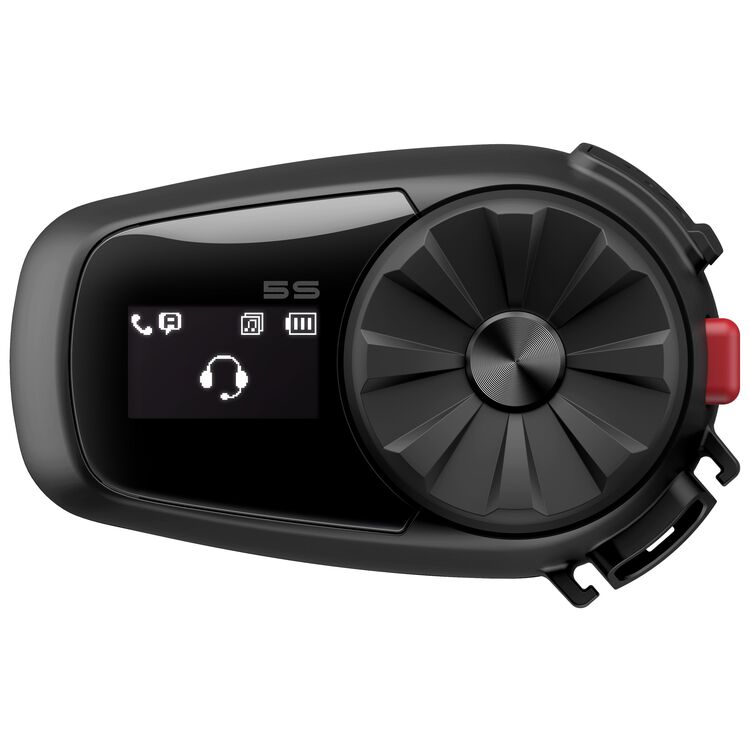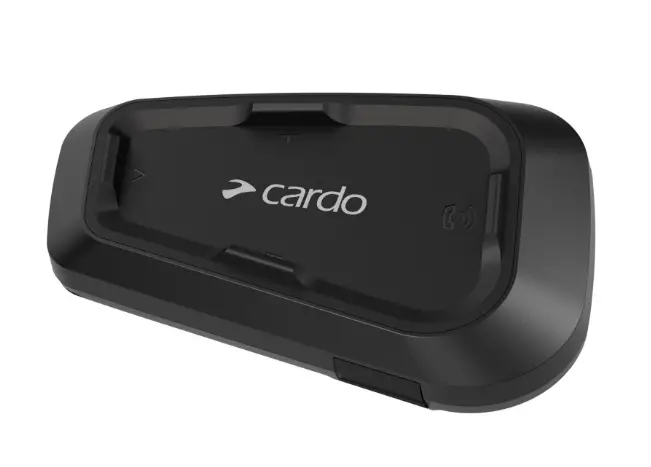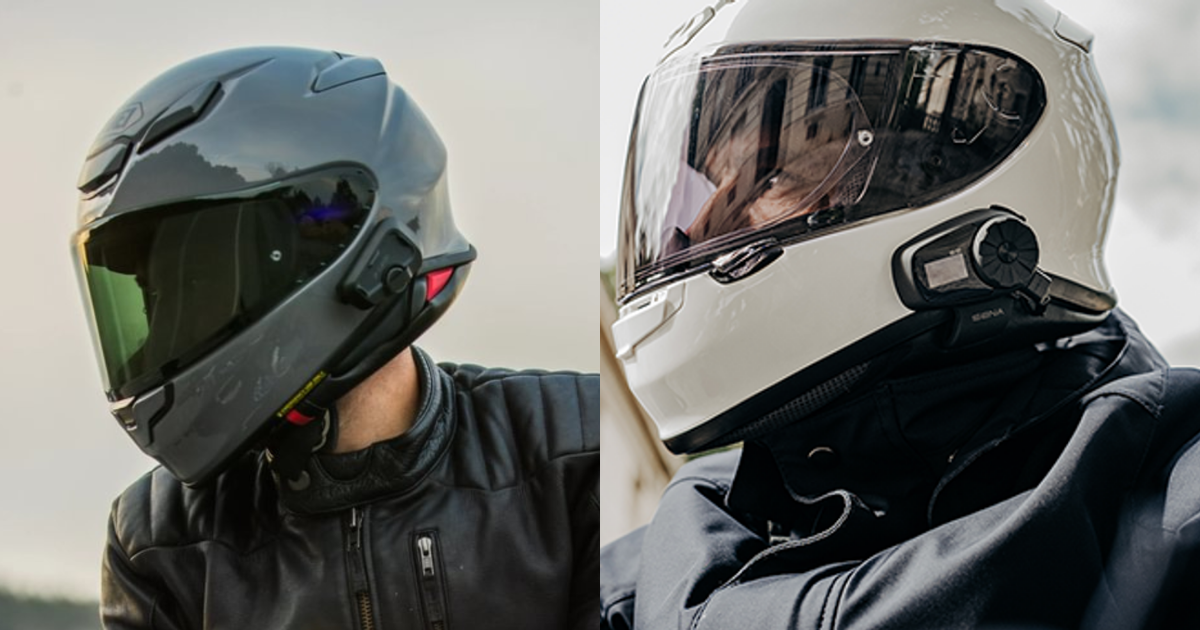
Cardo Spirit vs Sena 5S: Which Fits City Riders?
left for contents
After countless hours testing entry-level motorcycle intercoms through dense traffic, I’ve learned that the “best” budget system for city riding isn’t about having every premium feature—it’s about nailing the essentials that actually matter in stop-and-go traffic.
The Cardo Spirit is a modern entry-level communicator that brings newer technology to budget-conscious riders, while the Sena 5S is a proven performer that’s earned its reputation through reliable service. Both systems target the same market but take different approaches to delivering essential communication.
Here’s the detailed analysis of how they perform in real city conditions—and which one deserves a spot on your helmet.
N/A | $98.96 |
|
|
|
|
- Comfortable fit and clear HD sound
- Easy pairing via Bluetooth 5.1 and jog dial
- Music sharing and GPS directions in one headset
- LCD screen lets you check settings without take‑off
- Battery lasts around six hours on full volume
- Voice commands and FM radio may be removed
- Affordable
- Waterproof
- Music, Intercom, GPS work flawlessly
- Max 2 Intercom Participants
- Short range (600m)
Quick Verdict
Who should buy Cardo Spirit: riders wanting modern Bluetooth 5.2 technology at entry-level pricing, those needing universal connectivity with mixed-brand riding groups, and anyone prioritizing intuitive button layout for gloved operation. This is the perfect choice for the tech-savvy commuter, the rider joining diverse groups, or anyone wanting future-proof technology without premium pricing.
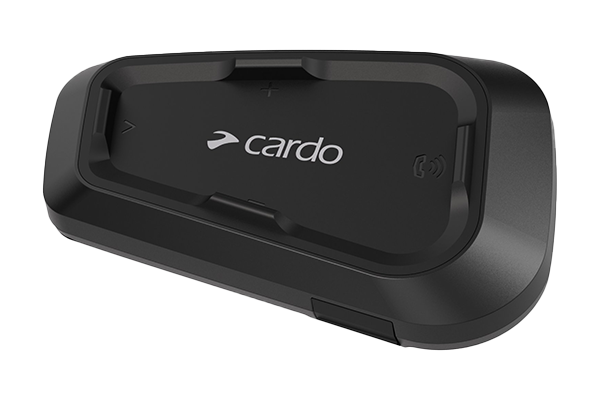
Who should buy Sena 5S: Budget-conscious city riders seeking proven reliability with excellent voice command implementation, those preferring slightly longer communication range, and anyone already invested in the Sena ecosystem. The 5S is ideal for riders who value established performance and superior voice control at entry-level pricing.
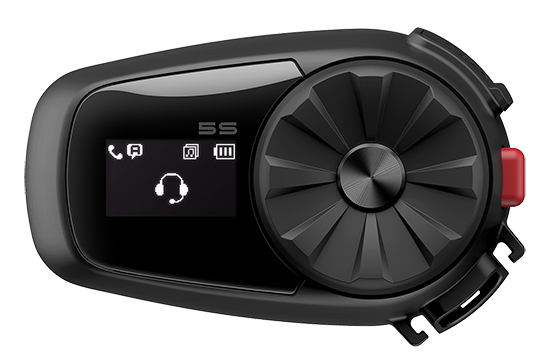
One-line summary of value: “The Spirit brings modern technology and universal connectivity to entry-level pricing, while the 5S delivers proven performance with excellent voice commands.”
Build Quality and Design Philosophy
Both systems demonstrate thoughtful engineering within entry-level pricing constraints, though with different approaches that reflect their manufacturers’ design philosophies.
Cardo Spirit: Modern Minimalism
The Spirit embodies contemporary entry-level design that prioritizes essential features with modern technology integration. The compact profile integrates seamlessly into helmets without adding unnecessary bulk that could catch wind during city lane changes. The construction feels solid and purposeful, focusing on reliability rather than premium materials while maintaining the quality expected from daily use.
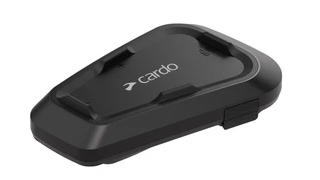
The IP67 waterproof rating provides essential protection for unpredictable weather conditions. This means complete dust protection from city pollution and the ability to withstand sudden downpours that riders frequently encounter. After extensive testing through varied city conditions—from construction dust to heavy rain—the unit maintains consistent performance and shows minimal wear patterns.
Sena 5S: Proven Entry-Level Excellence
The 5S represents Sena’s refined approach to accessible communication, leveraging years of development experience to deliver reliable performance at entry-level pricing. The construction reflects careful engineering that balances cost considerations with the durability requirements of regular use. The design prioritizes functionality and ease of use over premium aesthetics.

During extensive city testing, the 5S demonstrates the reliability that has made Sena a trusted name in motorcycle communication. The build quality provides confidence for daily commuting while maintaining the straightforward operation that makes entry-level systems appealing to new users. The interface design eliminates complexity that could interfere with quick decision-making in busy traffic situations.
Mounting Systems: Installation Priorities
The mounting approach significantly impacts daily convenience, especially for riders who frequently secure or remove their communication systems in city environments.
Cardo Spirit: Quick Integration The Spirit uses Cardo’s streamlined mounting system that balances security with convenience for riders. The system provides reliable attachment for city riding conditions while allowing easy removal for security during parking. The mounting hardware works effectively across different helmet styles commonly used in city environments.
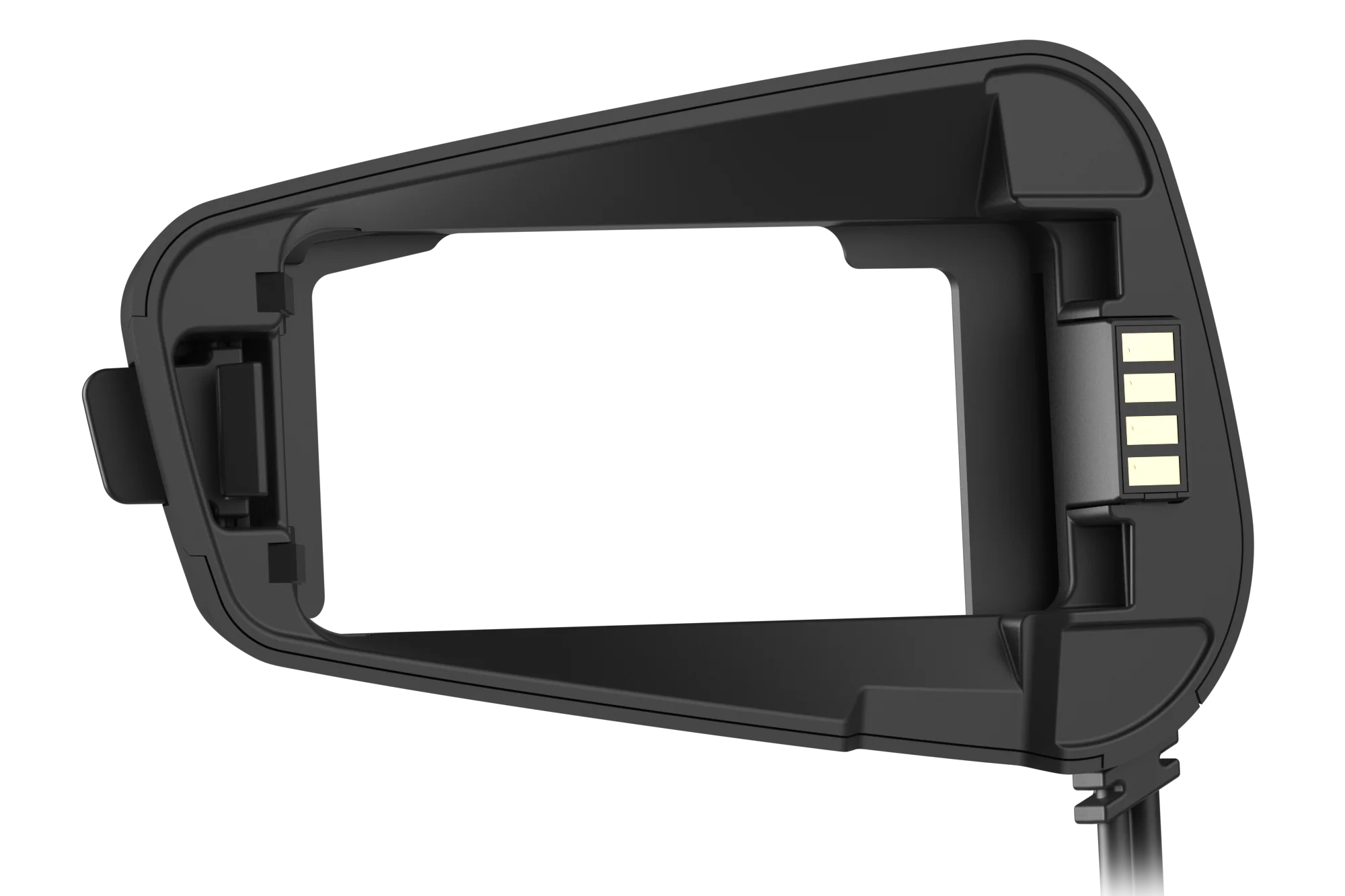
Sena 5S: Secure Mounting Sena employs their proven clamp mount system that emphasizes mechanical security and broad helmet compatibility. While requiring more deliberate installation procedures, the system provides solid attachment once properly installed and maintains reliable security during riding conditions.
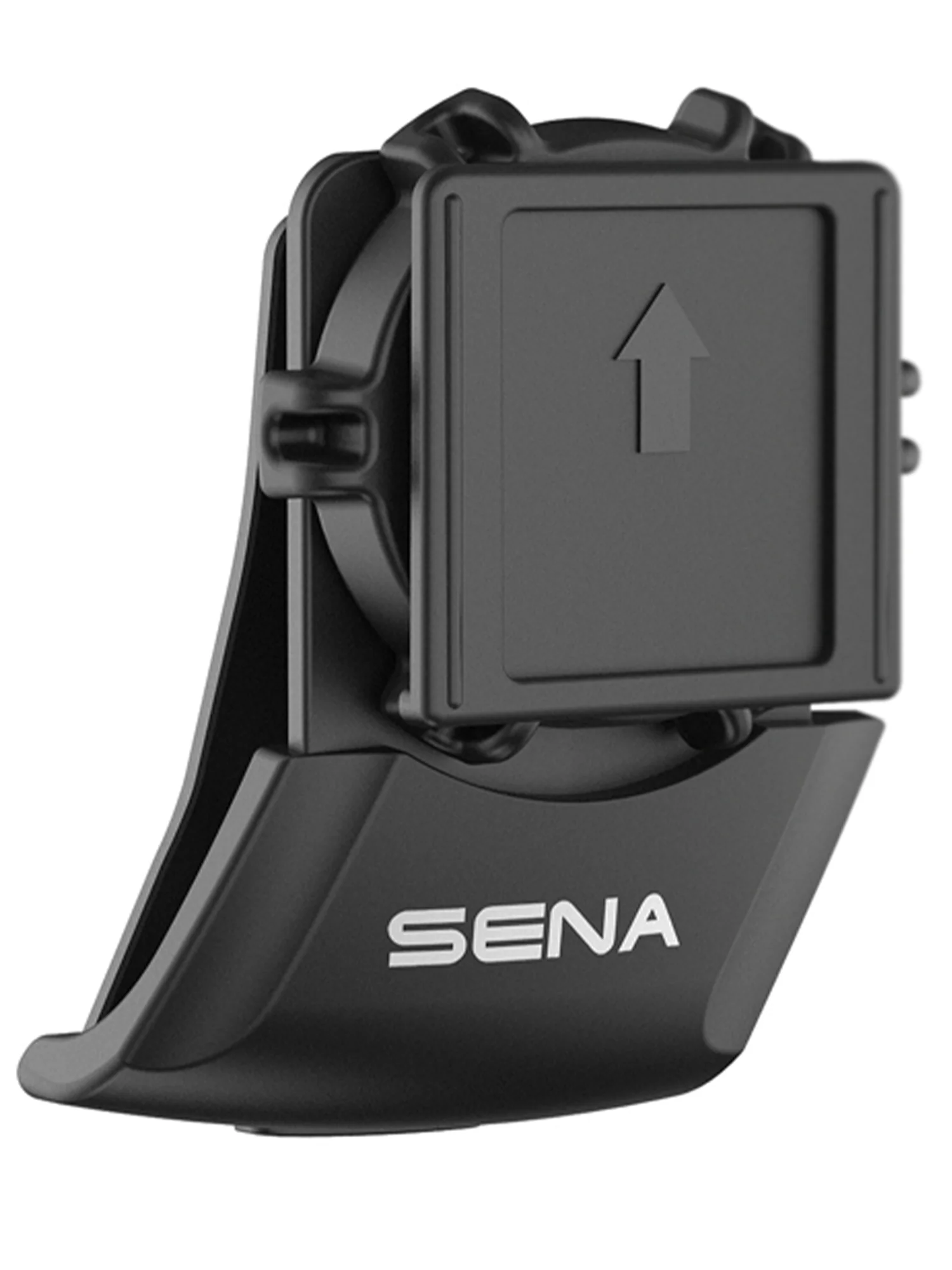
Check out the Cardo Spirit earns praise for its OTA updates, better speaker quality, and a more capable app—offering a modern feature set for its price.
Audio Performance: Entry-Level Clarity
Both systems feature quality speakers optimized for their price points, but their audio performance reveals important differences in noise handling and voice clarity.
Cardo Spirit: Modern Audio Processing
The Spirit’s audio performance leverages modern Bluetooth 5.2 technology to deliver impressive clarity for its entry-level positioning. Voice communication remains clear during moderate speeds, providing reliable capability for coordination and phone calls in typical city traffic. The audio processing prioritizes speech intelligibility, which proves most important during scenarios where clear communication prevents confusion and maintains safety.
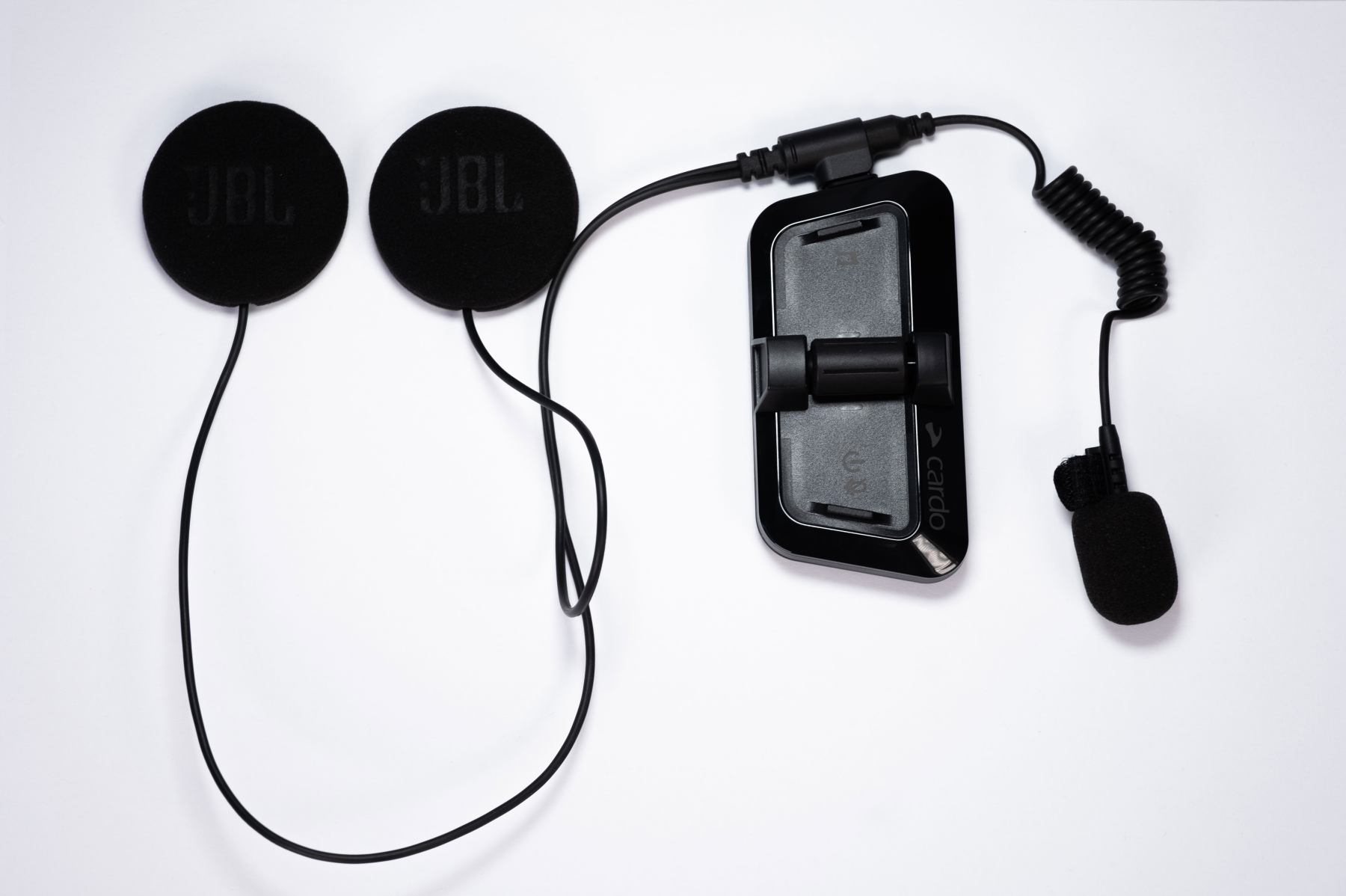
During city riding testing, the audio balance handles essential content effectively—GPS announcements, phone calls, and background music—without requiring constant manual adjustments. The automatic volume control, while not as sophisticated as premium models, adapts reasonably well to varying noise levels. The microphone provides adequate noise filtering for clear voice transmission in typical city environments.
Sena 5S: Established Audio
The 5S’s audio processing benefits from Sena’s extensive development experience in entry-level communication systems. Voice communication clarity meets expectations for budget systems while providing reliable performance in environments. The established audio algorithms deliver consistent results that riders can depend on for daily communication needs.

The system maintains adequate audio balance for typical scenarios, handling GPS directions, phone connectivity, and music playback with reliable consistency. While not featuring advanced noise processing, the 5S provides dependable audio performance that meets basic communication requirements without the complexity of premium systems.
Communication Technology: Entry-Level Range and Capacity
This category reveals the operational differences between these entry-level systems and determines their suitability for different riding scenarios.
Cardo Spirit: Modern Entry-Level Connectivity
- Range: 600m (0.4 miles) in typical terrain
- Group Capacity: 2 riders standard
- Connection Type: Bluetooth 5.2 with universal compatibility
- Reconnection: Automatic when riders return within range
- Special Features: “Hey Cardo” voice commands, universal brand connectivity
The Spirit focuses on reliable communication with modern Bluetooth technology providing enhanced connectivity stability. The 600m range handles typical city scenarios where riders might be separated by traffic lights or different lane positioning. The universal connectivity allows connection to different intercom brands during mixed group rides, providing flexibility without requiring group equipment standardization.

During testing, the Spirit maintains consistent communication within its range capabilities. The Bluetooth 5.2 technology provides more stable connections and better power efficiency compared to older Bluetooth versions. The automatic reconnection works reliably when riders are temporarily separated by traffic situations, resuming conversation seamlessly when regrouping.
Sena 5S: Proven Entry-Level Performance
- Range: Up to 700m (0.4 miles) in open terrain
- Group Capacity: 2-4 riders depending on configuration
- Connection Type: Standard Bluetooth with universal compatibility
- Features: Voice commands, music sharing, simple operation
The 5S provides essential communication with slightly extended range capabilities compared to the Spirit. The proven technology delivers reliable performance for basic riding scenarios while maintaining the simplicity that makes entry-level systems appealing to new users. The range advantage provides additional flexibility during group rides where natural separation occurs.

The system maintains dependable communication for typical scenarios while keeping operation straightforward and costs accessible. For riders who need basic group connectivity during city rides, the 5S delivers reliable performance without advanced features that may complicate operation in environments.
Check out our detailed Cardo Packtalk Edge vs. Sena 5S comparison page for insights on group rides, touring features, and which headset fits your riding style.
Battery Performance: Daily Reliability
Both systems provide battery life suitable for typical riding patterns, though with different charging approaches that impact daily convenience.
Cardo Spirit: 13+ hours of talk time with USB-C charging. The modern charging port provides convenience advantages for riders who manage multiple electronic devices daily and prefer standardized charging solutions.

Sena 5S: 10+ hours of talk time with micro-USB charging. While using an older charging standard, the system provides adequate battery life for typical riding scenarios with reliable power management during mixed-use situations.

Battery performance exceeds daily requirements for both systems. The Spirit’s USB-C charging provides modern convenience, while the 5S’s proven power management handles typical city communication needs efficiently without requiring premium battery technology.
Check out our Cardo Spirit vs. Sena 20S comparison for insights on solo vs. group riding performance, intercom range, battery life, and which communicator suits your riding style best.
Usage Scenarios
Choose the Cardo Spirit if:
- Modern technology appeals to your riding: Bluetooth 5.2 provides enhanced connectivity stability and future-proofing for city environments
- Universal connectivity matters for diverse groups: Ability to connect seamlessly with different intercom brands during varied city group rides
- You prefer intuitive button operation: Cardo’s button layout design facilitates easier operation during riding with gloves
- USB-C charging convenience is important: Modern charging compatibility integrates better with current rider device setups

Choose the Sena 5S if:
- Maximum entry-level range is crucial: The 700m range provides additional flexibility during group riding scenarios
- Voice command excellence is a priority: Superior voice command implementation at entry-level pricing for hands-free operation
- You’re already in the Sena ecosystem: Compatibility with existing Sena group equipment simplifies group ride coordination
- Proven reliability is preferred: Established performance record provides confidence for daily commuting
- Budget optimization is essential: Solid entry-level performance at the most accessible pricing for riders

Love a helmet that only fits a specific comms unit?
HJC, Shoei, Schuberth, Nexx and even Harley all try to force you in to custom-fit comms units that may not fit how you ride. So Tubs Jackson created an adapter to get a factory fit for any comms unit on these otherwise amazing helmets.
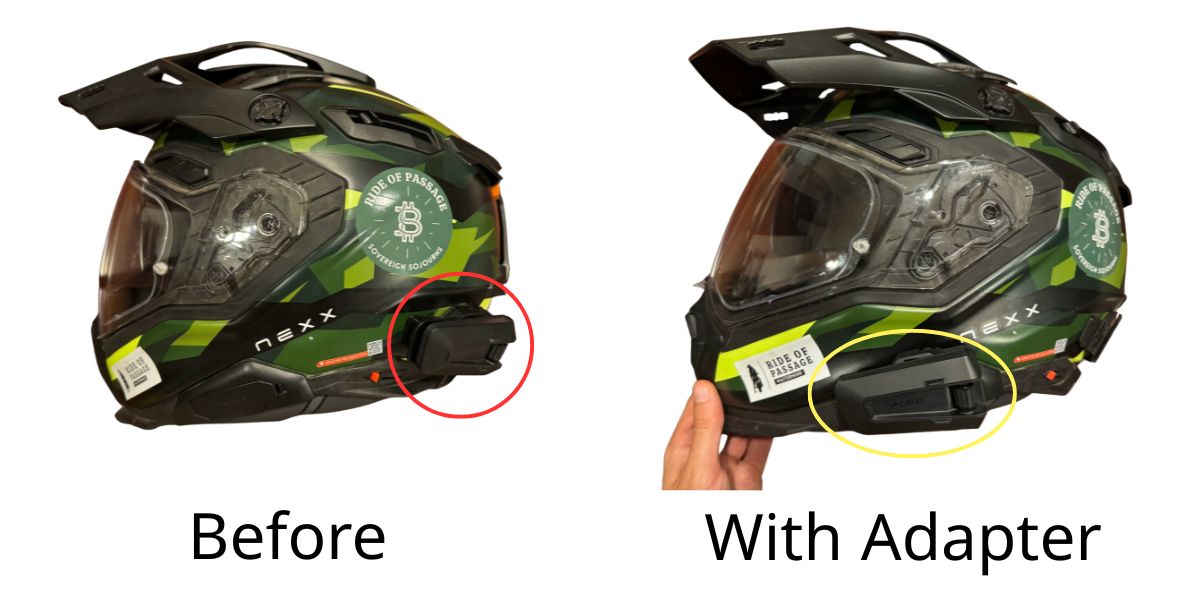
Tubs Jackson is a weird name, I know, but I have their adapter in my Nexx X.WED3 helmet and it’s rock solid. Much nicer than reaching way back to where I had the sticky mount before. I wish I’d thought of this idea.
Tip: Get FREE SHIPPING just by buying here or using code BETTERONTHEROAD at checkout.
Making the Right Entry-Level Investment Decision
Both the Cardo Spirit and Sena 5S represent excellent entry-level investments for motorcycle communication. Neither will disappoint when matched to appropriate city riding scenarios and communication requirements. The key insight is that the “best” entry-level system is the one that delivers essential features reliably without paying for advanced capabilities unnecessary for typical city riding patterns.
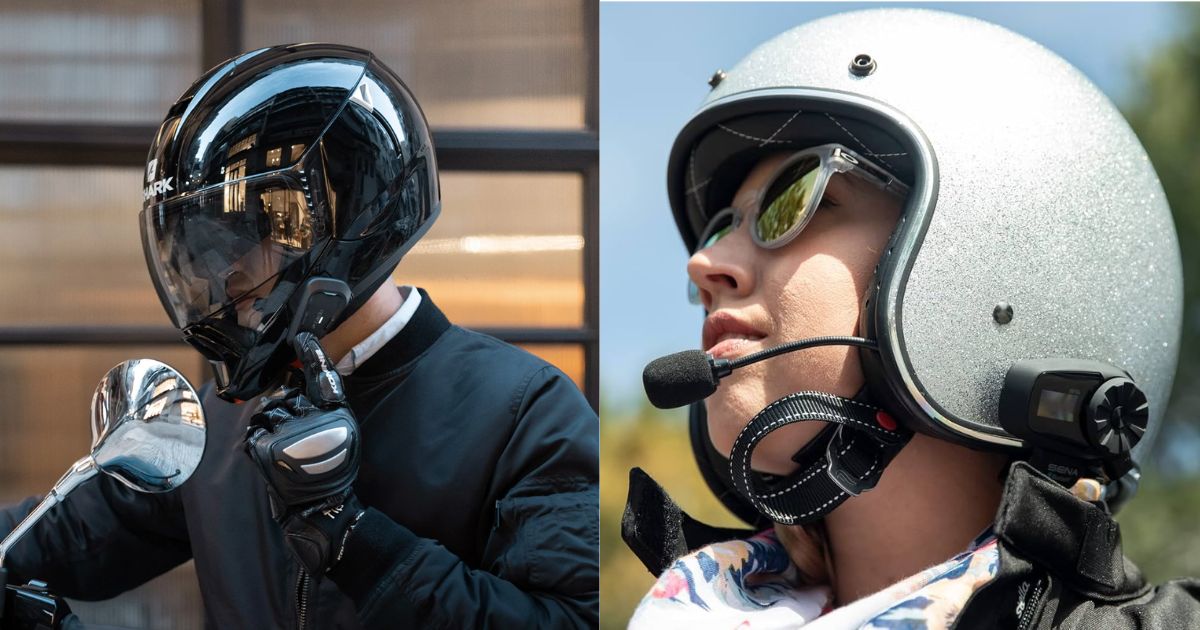
Final Entry-Level Recommendation Framework
Start with your actual riding patterns: Honestly assess your typical city communication needs, group size, and technology preferences rather than theoretical requirements. Do you primarily need phone and GPS connectivity for solo commuting, or do you regularly communicate with other riders during adventures?
Consider your technology ecosystem: Existing device charging standards and group equipment compatibility often influence practical daily use more than individual feature preferences. If you already use USB-C devices or ride with mixed intercom brands, compatibility becomes crucial for seamless integration.

Match features to entry-level usage: Focus on essential capabilities that enhance safety and convenience during city riding rather than advanced features you may not use regularly. Both systems excel at fundamental communication while maintaining entry-level accessibility.
Factor in long-term value: Entry-level systems provide years of reliable service when properly matched to usage requirements, making the initial decision important for sustained riding satisfaction. Consider features like charging convenience and universal connectivity that impact daily city use.
The choice isn’t about finding the objectively “best” entry-level system—it’s about finding the right system for how you actually ride in environments and what communication capabilities you genuinely need.
Both the Spirit and 5S excel within their intended entry-level use cases, providing reliable communication that enhances safety and enjoyment during city navigation. Whether you choose modern technology integration or proven performance reliability, you’re investing in better communication that makes every city ride safer and more connected.
N/A | $98.96 |
|
|
|
|
- Comfortable fit and clear HD sound
- Easy pairing via Bluetooth 5.1 and jog dial
- Music sharing and GPS directions in one headset
- LCD screen lets you check settings without take‑off
- Battery lasts around six hours on full volume
- Voice commands and FM radio may be removed
- Affordable
- Waterproof
- Music, Intercom, GPS work flawlessly
- Max 2 Intercom Participants
- Short range (600m)
Related

Best Cardo Communicators for Motorcycle Riders
Find the best Cardo communicator for your rides—compare mesh, Bluetooth, sound, and features to match your budget, group size, and style.

